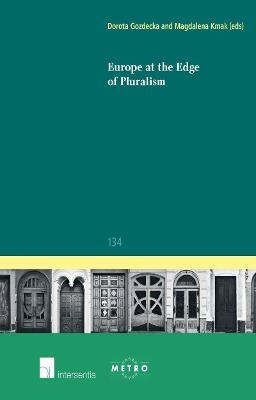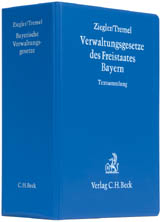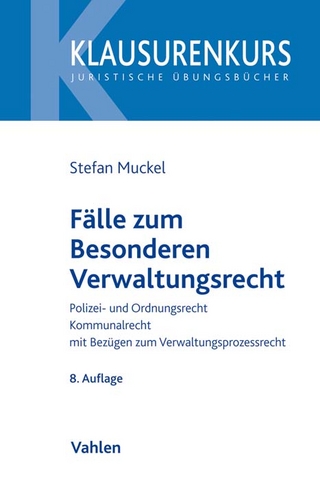
Europe at the Edge of Pluralism
Intersentia Ltd (Verlag)
978-1-78068-306-5 (ISBN)
- Keine Verlagsinformationen verfügbar
- Artikel merken
Magdalena Kmak is a Lecturer in International Law at the Faculty of Law, University of Helsinki and researcher at the Erik Castrn Institute of International Law and Human Rights. She is also a co-director (together with Dr Dorota A. Gozdecka) of the project Law and the Other in Post-Multicultural Europe. Magdalena's research focuses on legal rules regulating administrative detention of immigrants. The overarching objective of her research project is to address the problem of increasing use of detention of foreigners and to explore the rationality behind the establishment and functioning of this institution as well as its intricate ties to the international human rights instruments. Her other research interests encompass international and European refugee and migration law, human rights, public international law, governmentality, new penology and nomadism.
CONTENTSIntroductionDorota A. Gozdecka and Magdalena Kmak PART I. LAW, DIVERSITY AND PLURALISMDemocratizing Identity Politics: a Deliberative Approach to the Politics ofRecognitionSelen A. Ercan Critiques of the Politics of Recognition in the Context of Multiculturalism Two Approaches to Culture and Identity: Essentialism versus Constructivism Beyond Cultural Essentialism: Insights from Deliberative Democracy Enacting Politics of Recognition within and beyond Formal Institutions Conclusion Bibliography What is Post-Multiculturalism? Recent Trends in Legal and Political DiscourseDorota A. Gozdecka and Selen A. Ercan Introduction What is Post-Multiculturalism? Manifestations of the Shift from Multiculturalism to Post-Multiculturalism i) Gender Inequality (Only) in Minority Cultures ii) Overemphasis on Religious Identities iii) The Discourse of "Parallel Societies" and the Need for "Social Cohesion" The New Imaginary of Cultural Minorities in the Post-Multiculturalist Era Conclusion Bibliography The Categorization of Minorities in the European Context: Unwrapping the BoxEliska Pirkova Introduction Searching for an International Definition of Minorities The European Union as a "Catalyst" for Different Identities: Unified in Diversity? Conclusion Bibliography From Universality to Responsibility in International Human Rights. Analyzing David Kennedy's Critical ApproachMarcin Kilanowski Introduction: Universal Human Rights - Strengthening Existing Mechanisms? The Hegemony of the Language of Rights Institutional Hegemony The Illusion of the Law and Politics Divide From the Dark Sides to Responsibility and Pragmatism Language of Responsibility? Summing Up Bibliography Pluralisation through Legal Conflicts? Rethinking Law and Cultural PluralismUkri Soirila Introduction Conservative Cultural Pluralism? Towards Pluralization! Law as Progressive Force? Conclusion Bibliography 'The Ugly' of EU Migration Policy: the role of the Recast Reception Directive in Fragmentation of the Refugee SubjectMagdalena Kmak Introduction The Recast of the Reception Directive Subjectivity Trap - Genuine Refugee v. Bogus Asylum Seeker Resisting the Subjectivity Trap Conclusions Bibliography Welcome to the Margins of Society: an Analysis of (Civic) Integration Policy and the Fundamental Rights of ImmigrantsSanne van de Pol Introduction (Inter)national Responses to Increasing Diversity Integration and Civic Integration Policy in Flanders Tensions Created by Civic Integration Civic Stratification Migrant Perspective Civic Integration and Fundamental Rights Civic Integration and Fundamental Rights as an Emancipatory Tool Conclusion Bibliography Performing Citizenship and Integration in the UKSam Bennett Introduction Citizenship and Integration Discursive Constructions of Integration A Neo-Liberal Understanding of Citizenship and Performing Integration Conclusion Bibliography PART II. RELIGION, AGENCY AND MINORSLaw, Agency and the Intimate Relationships of Young People: from Rights to Duties and Back?Sanna Mustasaari Introduction: The Intimate Sphere, "Normality" and Law Intimate Relationships, Autonomy and Human Agency Autonomy, Notions of "Normality" and Sexual Education Autonomy and Exemptions of Age Limits: the Finnish Case of Child Marriage? Agency and Critical Autonomy: from Rights to Duties and Back? Conclusions Bibliography Respecting Religious Freedoms and Freedom Itself: How "on Earth" Do We Raise Our Children?Ryan Hill Introduction The Nature of the Argument over Interfering in Religious Dress Code for Adults An Equality Based Argument for Interfering in a Child's Religious Dress Codes Barriers to Interfering in Children's Adoption of Religious Dress Codes A Brief Suggestion on How States Might Best Envision Their Obligations to Children over Religious Dress Codes Conclusion Bibliography PART III. RESPECT AND MEMORYDemocracy as a Trump Card? Combating Hate Speech in Pluralistic SocietiesJernej Letnar Cernic Backdrop The Reach of Freedom of Expression Hate Speech in the Jurisprudence of the European Court of Human Rights Prohibition of Hate Speech and Democracy Conclusions Bibliography Coping with the Past in a Multicultural Europe: the European Court of HumanRights on Memory and LawAleksandra Gliszczynska-Grabias Introduction Struggling with the Past The ECtHR on Holocaust Denial, Marshal Petain and the Communist Red Star (De)legitimised Heritage and Memory of the Other Concluding Remarks Bibliography What Judicial Memory for the Amnesty Law of 1977?Monica Lopez Lerma The Amnesty Law of 1977: the Pact of Legal Oblivion Remembering the Victims: the Law of Historical Memory Garzon against Francoism: Breaking the Judicial Silence The Struggle over Judicial MemoryConclusion Bibliography
| Erscheint lt. Verlag | 18.5.2015 |
|---|---|
| Reihe/Serie | Ius Commune: European and Comparative Law Series ; 134 |
| Co-Autor | Dorota Gozdecka, Magdalena Kmak, Selen A. Ercan |
| Verlagsort | Cambridge |
| Sprache | englisch |
| Maße | 172 x 236 mm |
| Gewicht | 370 g |
| Themenwelt | Recht / Steuern ► EU / Internationales Recht |
| Recht / Steuern ► Öffentliches Recht ► Besonderes Verwaltungsrecht | |
| Recht / Steuern ► Öffentliches Recht ► Verfassungsrecht | |
| Sozialwissenschaften ► Politik / Verwaltung | |
| ISBN-10 | 1-78068-306-5 / 1780683065 |
| ISBN-13 | 978-1-78068-306-5 / 9781780683065 |
| Zustand | Neuware |
| Haben Sie eine Frage zum Produkt? |
aus dem Bereich


